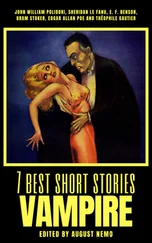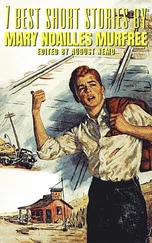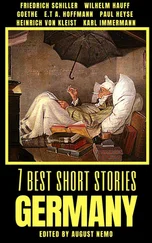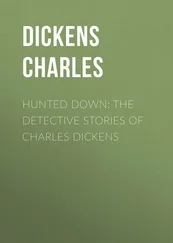In the woolly vagueness of this passage one can see Dickens's utter lack of any educational theory. He can imagine the moral atmosphere of a good school, but nothing further. The boys 'learnt with a good will', but what did they learn? No doubt it was Doctor Blimber's curriculum, a little watered down. Considering the attitude to society that is everywhere implied in Dickens's novels, it comes as rather a shock to learn that he sent his eldest son to Eton and sent all his children through the ordinary educational mill. Gissing seems to think that he may have done this because he was painfully conscious of being under-educated himself. Here perhaps Gissing is influenced by his own love of classical learning. Dickens had had little or no formal education, but he lost nothing by missing it, and on the whole he seems to have been aware of this. If he was unable to imagine a better school than Doctor Strong's, or, in real life, than Eton, it was probably due to an intellectual deficiency rather different from the one Gissing suggests.
It seems that in every attack Dickens makes upon society he is always pointing to a change of spirit rather than a change of structure. It is hopeless to try and pin him down to any definite remedy, still more to any political doctrine. His approach is always along the moral plane, and his attitude is sufficiently summed up in that remark about Strong's school being as different from Creakle's 'as good is from evil'. Two things can be very much alike and yet abysmally different. Heaven and Hell are in the same place. Useless to change institutions without a 'change of heart'—that, essentially, is what he is always saying.
If that were all, he might be no more than a cheer-up writer, a reactionary humbug. A 'change of heart' is in fact the alibi of people who do not wish to endanger the status quo . But Dickens is not a humbug, except in minor matters, and the strongest single impression one carries away from his books is that of a hatred of tyranny. I said earlier that Dickens is not in the accepted sense a revolutionary writer. But it is not at all certain that a merely moral criticism of society may not be just as 'revolutionary'—and revolution, after all, means turning things upside down—as the politico-economic criticism which is fashionable at this moment. Blake was not a politician, but there is more understanding of the nature of capitalist society in a poem like 'I wander through each charted street' than in three-quarters of Socialist literature. Progress is not an illusion, it happens, but it is slow and invariably disappointing. There is always a new tyrant waiting to take over from the old—generally not quite so bad, but still a tyrant. Consequently two viewpoints are always tenable. The one, how can you improve human nature until you have changed the system? The other, what is the use of changing the system before you have improved human nature? They appeal to different individuals, and they probably show a tendency to alternate in point of time. The moralist and the revolutionary are constantly undermining one another. Marx exploded a hundred tons of dynamite beneath the moralist position, and we are still living in the echo of that tremendous crash. But already, somewhere or other, the sappers are at work and fresh dynamite is being tamped in place to blow Marx at the moon. Then Marx, or somebody like him, will come back with yet more dynamite, and so the process continues, to an end we cannot yet foresee. The central problem—how to prevent power from being abused—remains unsolved. Dickens, who had not the vision to see that private property is an obstructive nuisance, had the vision to see that. 'If men would behave decently the world would be decent' is not such a platitude as it sounds.
More completely than most writers, perhaps, Dickens can be explained in terms of his social origin, though actually his family history was not quite what one would infer from his novels. His father was a clerk in government service, and through his mother's family he had connexions with both the Army and the Navy. But from the age of nine onwards he was brought up in London in commercial surroundings, and generally in an atmosphere of struggling poverty. Mentally he belongs to the small urban bourgeoisie, and he happens to be an exceptionally fine specimen of this class, with all the 'points', as it were, very highly developed. That is partly what makes him so interesting. If one wants a modern equivalent, the nearest would be H. G. Wells, who has had a rather similar history and who obviously owes something to Dickens as novelist. Arnold Bennett was essentially of the same type, but, unlike the other two, he was a midlander, with an industrial and noncomformist rather than commercial and Anglican background.
The great disadvantage, and advantage, of the small urban bourgeois is his limited outlook. He sees the world as a middle-class world, and everything outside these limits is either laughable or slightly wicked. On the one hand, he has no contact with industry or the soil; on the other, no contact with the governing classes. Anyone who has studied Wells's novels in detail will have noticed that though he hates the aristocrat like poison, he has no particular objection to the plutocrat, and no enthusiasm for the proletarian. His most hated types, the people he believes to be responsible for all human ills, are kings, landowners, priests, nationalists, soldiers, scholars and peasants. At first sight a list beginning with kings and ending with peasants looks like a mere omnium gatherum, but in reality all these people have a common factor. All of them are archaic types, people who are governed by tradition and whose eyes are turned towards the past—the opposite, therefore, of the rising bourgeois who has put his money on the future and sees the past simply as a dead hand.
Actually, although Dickens lived in a period when the bourgeoisie was really a rising class, he displays this characteristic less strongly than Wells. He is almost unconscious of the future and has a rather sloppy love of the picturesque (the 'quaint old church', etc.). Nevertheless his list of most hated types is like enough to Wells's for the similarity to be striking. He is vaguely on the side of the working class—has a sort of generalized sympathy with them because they are oppressed—but he does not in reality know much about them; they come into his books chiefly as servants, and comic servants at that. At the other end of the scale he loathes the aristocrat and—going one better than Wells in this loathes the big bourgeois as well. His real sympathies are bounded by Mr. Pickwick on the upper side and Mr. Barkis on the lower. But the term 'aristocrat', for the type Dickens hates, is vague and needs defining.
Actually Dickens's target is not so much the great aristocracy, who hardly enter into his books, as their petty offshoots, the cadging dowagers who live up mews in Mayfair, and the bureaucrats and professional soldiers. All through his books there are countess hostile sketches of these people, and hardly any that are friendly. There are practically no friendly pictures of the landowning class, for instance. One might make a doubtful exception of Sir Leicester Dedlock; otherwise there is only Mr. Wardle (who is a stock figure the 'good old squire') and Haredale in Barnaby Rudge , who has Dickens's sympathy because he is a persecuted Catholic. There are no friendly pictures of soldiers (i.e. officers), and none at all of naval men. As for his bureaucrats, judges and magistrates, most of them would feel quite at home in the Circumlocution Office. The only officials whom Dickens handles with any kind of friendliness are, significantly enough, policemen.
Dickens's attitude is easily intelligible to an Englishman, because it is part of the English puritan tradition, which is not dead even at this day. The class Dickens belonged to, at least by adoption, was growing suddenly rich after a couple of centuries of obscurity. It had grown up mainly in the big towns, out of contact with agriculture, and politically impotent; government, in its experience, was something which either interfered or persecuted. Consequently it was a class with no tradition of public service and not much tradition of usefulness. What now strikes us as remarkable about the new moneyed class of the nineteenth century is their complete irresponsibility; they see everything in terms of individual success, with hardly any consciousness that the community exists. On the other hand, a Tite Barnacle, even when he was neglecting his duties, would have some vague notion of what duties he was neglecting. Dickens's attitude is never irresponsible, still less does he take the money-grubbing Smilesian line; but at the back of his mind there is usually a half-belief that the whole apparatus of government is unnecessary. Parliament is simply Lord Coodle and Sir Thomas Doodle, the Empire is simply Major Bagstock and his Indian servant, the Army is simply Colonel Chowser and Doctor Slammer, the public services are simply Bumble and the Circumlocution Office—and so on and so forth. What he does not see, or only intermittently sees, is that Coodle and Doodle and all the other corpses left over from the eighteenth century are performing a function which neither Pickwick nor Boffin would ever bother about.
Читать дальше
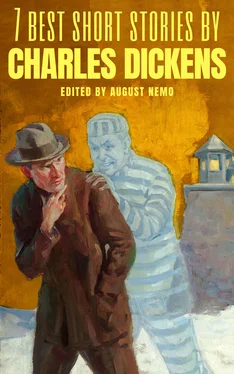
![Коллектив авторов - Best Short Stories [С англо-русским словарем]](/books/26635/kollektiv-avtorov-best-short-stories-s-anglo-thumb.webp)


